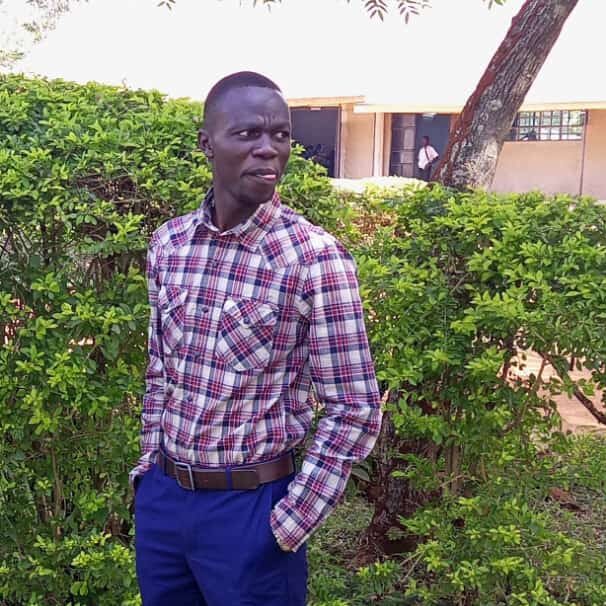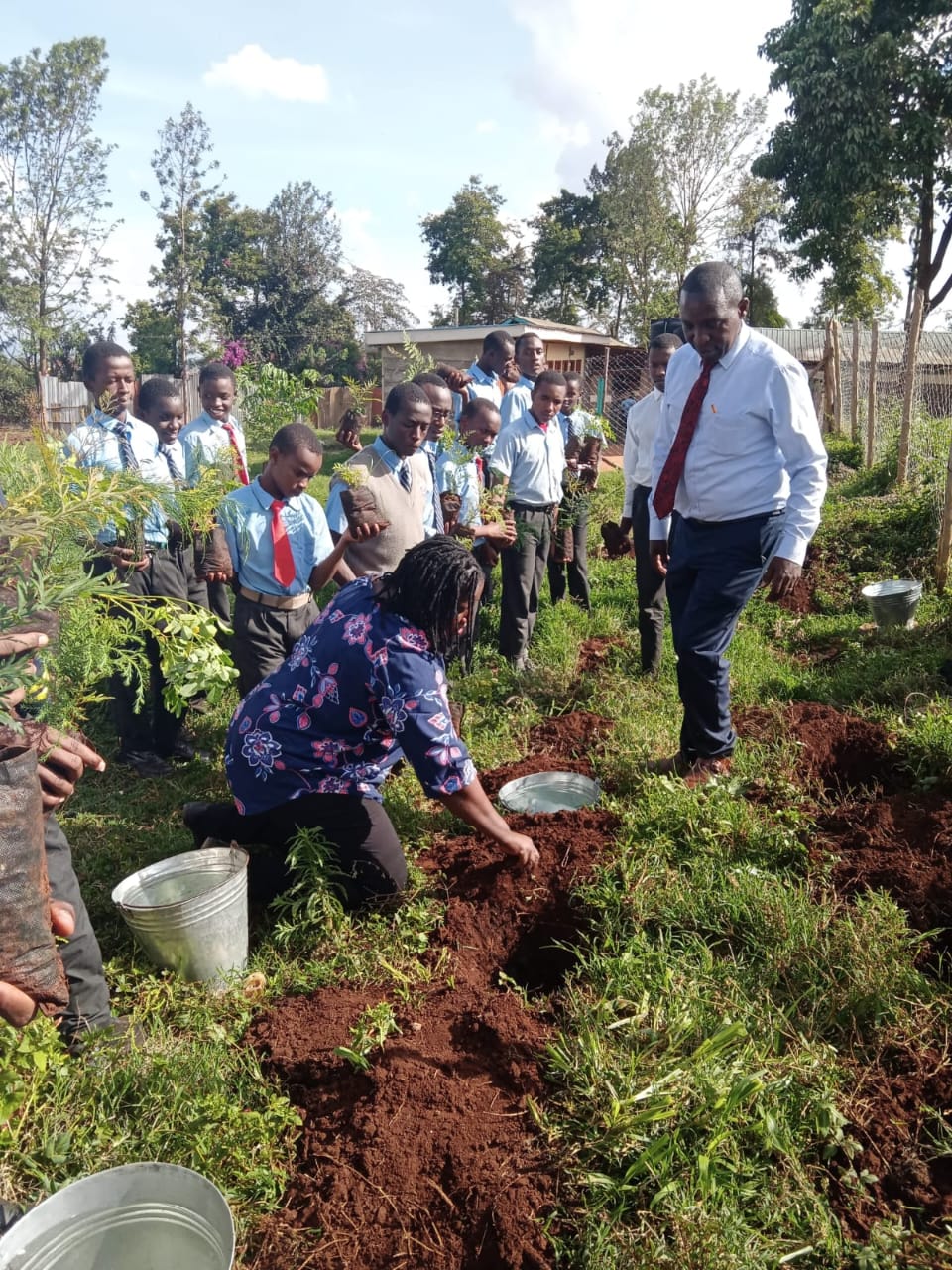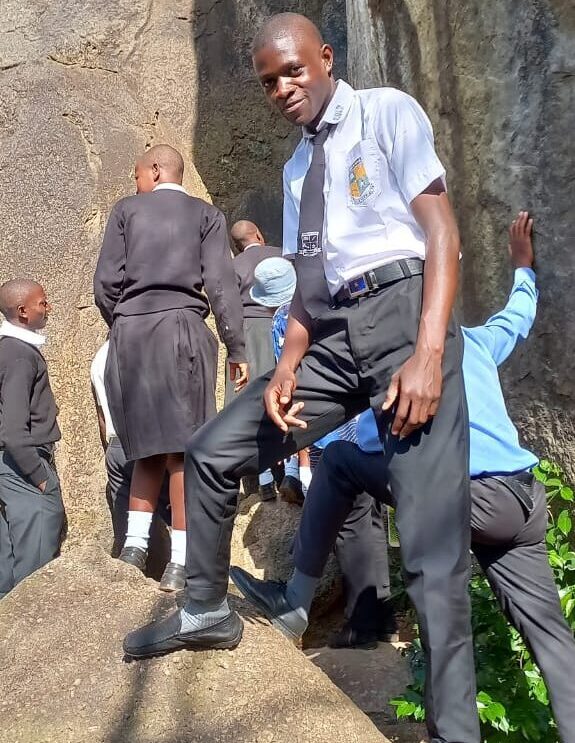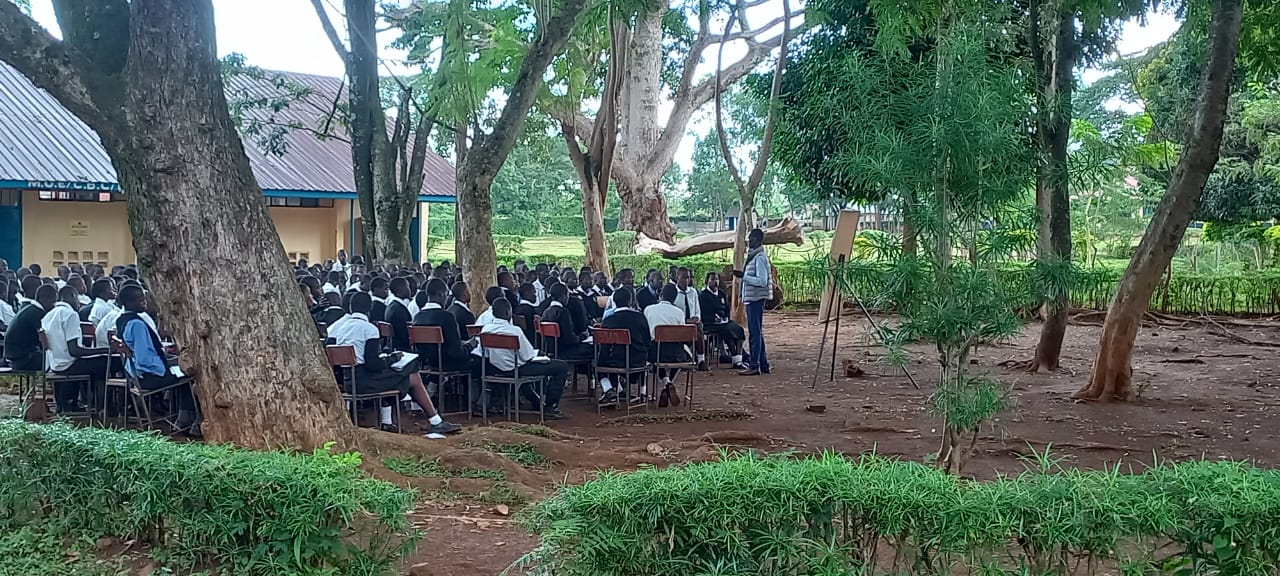Mr. Kevin Onyango Ouma: A Champion for Environmental Education in Western Kenya
Wayfinder Society is for environmental educators who believe in the power of collective action. It is an online platform hosting a robust offering of classroom and teaching resources that makes it easy for educators to create a fun, dynamic, and engaging classroom and to inspire their students through environmental awareness and action. Every other month, we highlight an educator in our network.

Mr. Kevin Onyango Ouma is a geography teacher at Ndenga Secondary School in Siaya, Western Kenya. His passion for environmental conservation is so deeply ingrained that it has earned him the fitting nickname of “Mr. Environment” among his students. As an educator, Mr. Ouma recognizes the urgent need to address environmental degradation and has made it his mission to inspire the next generation to become stewards of the planet.
Mr. Ouma’s approach to teaching goes far beyond traditional geography lessons. He emphasizes the critical dangers posed by plastic pollution, knowing that every piece of plastic ever made still exists in some form—whether in landfills, as litter, or scattered across natural environments. By introducing innovative ideas and sustainable alternatives, he empowers his students to be part of the solution.
The impact of his work is beautifully captured in a story shared by one of his students, Patrober, who nominated Mr. Ouma for the Wayfinder Society Educator Mini-Grant:
“Before I joined this school, I used to throw plastic litter on the ground when I was done with it. I enjoyed using plastic and I used a lot of it. But after I learnt from Mr. Environment on the dangers posed to the environment by plastic pollution, I changed my behavior and became an activist against plastic pollution. The town clean up exercise has not only helped to reduce the amount of plastic being disposed of in our local environment, but it has also made the community members realize that it is bad to pollute the environment with plastic thus slowly by slowly, many community members are joining us as ambassadors against plastic pollution too!”
As his school’s environmental club advisor, Mr. Ouma champions environmental issues with his students. Every Wednesday, passionate students meet up with Mr. Ouma in a brainstorming meeting to measure the ongoing impact of their programs, assess what challenges may have arisen, and decide on new projects students may be interested in. These weekly meetings are just one aspect of Mr. Ouma’s commitment to environmental education. He also hosts special events, such as a recent screening of The Story of Plastic, a documentary that shines light on the entire lifecycle of plastics and the human communities across the world being impacted by it.
Last term, he took club members to nearby Aboke town where they cleaned the town center by picking litter and separating plastic litter from other litter that can decompose. Surprisingly, the community members were inspired by this simple action of cleanup, and they joined in to help as well! These cleanups continue today with more and more people joining as time goes on.
Ndenga Secondary School is situated near a stream that flows into the Nzoia River and eventually into Lake Victoria—an area heavily impacted by plastic and other pollutants. Mr. Ouma helps his students understand the direct connection between local actions and broader environmental consequences. Under his guidance, students participate in cleanup efforts around the stream and have planted trees to reduce soil erosion and shield the waterway from plastic pollution.
Every morning, as Mr. Ouma walks to school, he passes by the small forest his students helped create. He picks up any plastic debris caught in the trees or scattered on the ground, preventing it from being swept into the stream. His daily actions serve as a powerful example of environmental stewardship.
Furthermore, another way Mr. Ouma has taken his environmental education efforts beyond the classroom is labelling pathways in their school with snippets of information regarding plastic pollution and highlighted quotes from environmental leaders like Prof. Wangari Maathai, Capt. Charles Moore, and many others. The goal is to encourage conversation and awareness for not just students, but parents and teachers visiting the school as well. These creative programs, along with other initiatives, have made a big difference on their school’s campus with far less plastic litter and have spurred more student ownership over the cleanliness of the space. With Mr. Ouma’s leading the charge, students are adopting alternative ways to pack their lunches and school in reuse containers made of materials that are not single-use plastics. Several parents have even upcycled old worn-out clothes into fabric bags that their students can bring their school supplies or lunches in! This is a stark difference to previous years.
Despite the challenges of limited resources, Mr. Ouma remains determined to provide his students with meaningful environmental education experiences. Last term, he organized a trip to Lake Victoria to see the extent of plastic pollution there, carry out a cleanup, and educate the fishermen and fish vendors on the harms of fishing debris on marine ecosystems. However, the cost of the trip – 1,000 Ksh per student- meant that only four of the fifty-two environmental club members could attend. The Wayfinder Society Educator Mini-Grant will help subsidize the funds for the trip to open the opportunity to all students – regardless of economic ability – to make Mr. Ouma’s dream a reality for his students.
Mr. Ouma’s dedication to environmental conservation extends to the wider community. He is an active participant in several local environmental initiatives, including Siaya Green Point, a project under the National Environment Management Authority (NEMA) in Kenya. A “Green Point” is a building that aims at bringing the green and blue economy concepts with this group championing the incorporation of technologies, such as rainwater harvesting, solar power, and solid waste segregation among many others into building techniques. In addition, Mr. Ouma is also a member of the Green Belt Movement. This movement was founded in 1977 by Professor Wangari Maathai that focuses on planting trees (51 million trees planted in Kenya alone!). In addition to tree planting, this movement works at the grassroots, national, and international levels to promote environmental conservation; to build climate resilience and empower communities, especially women and girls; to foster democratic space and sustainable livelihoods.
Congratulations to Mr. Ouma on receiving the July Wayfinder Society Educator Mini-Grant! We cannot wait to see the incredible impact you make in your school and community. You are an inspiring example of why we believe educators are our greatest allies in environmental movements. Best of luck in your endeavors!

Mr. Ouma leading the school principal and students in a tree planting exercise on campus near the stream that flows into Lake Victoria.

Environmental Club leaders visited Ngenia Water Falls to assess the amount of plastic that is deposited within the rocks adjacent to the falls. During the visit, they led a clean up of and wrote a letter to the Siaya County government encouraging adopting measures to stop the excessive dumping of plastic waste in bodies of water.

Mr. Ouma leading a geography lesson outside on campus.
